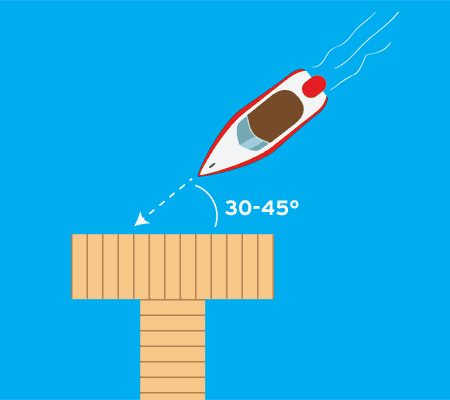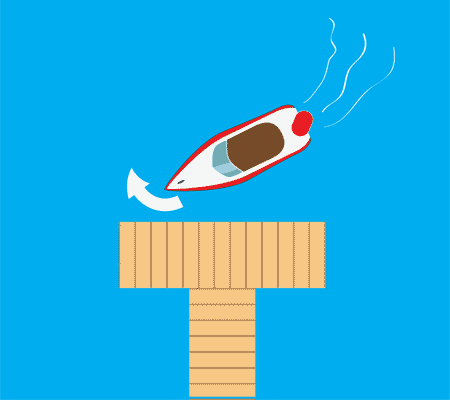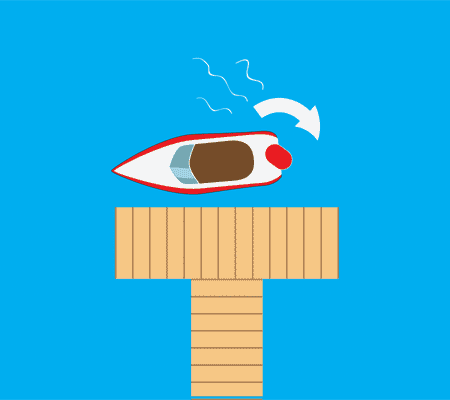Docking makes boaters nervous. Throw a little wind and current in the mix, and you can find yourself overwhelmed with things to worry about. Your technique shouldn't be one of your worries. Coming alongside a dock or bulkhead can be accomplished in just four steps. But first, you need to know a few things about your boat.
I see the results of not docking appropriately all too often. So please, read this.
This procedure is for outboard- or sterndrive-powered boats. Hopefully you've had enough time at the helm to know how your boat pivots when you throw the wheel hard over in either direction. Many beginning boaters are surprised at how much the stern swings or slides out when they initiate a turn. If you're not familiar with your boat's tendencies, to get a feel, practice by approaching a buoy or crab pot marker as though it were the dock. Once you've got that down, choose which side you want to tie up, deploy fenders, and you're ready to make your approach. These instructions are for a portside tie.
Step 1: Line Up Your Approach

Steps 1 and 2
Slowly approach center of desired berth
When approaching the space on the dock where you want to come alongside, first judge wind and current. If the wind or current will be pushing you toward the dock, a shallow angle will help you keep control and not strike the dock with the bow of the boat. If the wind and/or current are conspiring to keep you off the dock, as so often seems to be the case, you'll need a steeper approach to carry enough momentum to get you into the dock. Start with a 30- to 45-degree angle as you learn what works best for your boat. Aim your bow toward the center of your landing point.
Step 2: Come In Slowly
There's an old saying, "Never approach a dock any faster than you're willing to hit it." Bump the boat in and out of gear to maintain slow progress toward your chosen spot. On twin-engine boats, use one engine at a time to creep in.
Step 3: Time Your Swing

Step 3
Wheel to starboard, engine in forward
When your bow is within, say, half a boat length, swing the wheel over hard to starboard (away from the dock). This is where knowing your boat becomes important, particularly regarding where it pivots. Turn too soon, and you won't end up parallel with the dock. Too late, and bang. With the wheel hard over, bump the engine into gear for an instant to kick the stern to port. This will also swing the bow away from the dock (to starboard) so you won't hit it.
Step 4: The Flourishing Finish

Step 4
Wheel to port, engine reversed
As the boat glides toward being parallel with the dock, swing the wheel all the way back to port, and kick the engine into reverse (on twins, use the engine farthest from the dock for maximum effect). This will simultaneously stop your headway and pull the stern of the boat to port and closer to the dock. When the boat has stopped moving forward, put it in neutral. The boat should continue side-slipping right up to the dock, allowing you to simply reach out and grab a
line or piling.
Thanks to Michael Vatalaro, BoatUS Magazine's executive editor